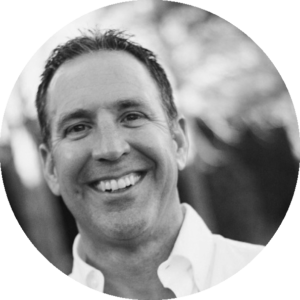What is an Assessment and Why Take One?
Why Take an Assessment?
We’ve been assessing people for over 25 years and there is one thing we’ve learned about helping people understand their unique attributes through these assessment tools:
You can never figure out where you want to go unless you first know where you are.
We meet with individuals and help them understand what reality is in their life. Well-designed assessments provide psychometrically valid insights for individuals to fully appreciate who they are now. Once there, it’s feasible to determine where to go and how to get there. Without exception, assessments help you see yourself more realistically.
It would be foolish to set out driving with no sense of where you are OR where you want to go. As we are all aware, our GPS must first locate your current position, then locate the address or location where you want to go; only then can the GPS plot the specific steps that you must take to get to your desired location. Just as with your GPS, in real life, there may be different options to get to where you are going. You may be surprised, but we have found what helps in putting together a path to your destination is knowing where you have been. For this reason, several assessments evaluate your past, present as well as your future aspirations.
Understanding where you have been enables you to better understand where you are.
Assessments provide an opportunity to review your behavior in the past. This is not an attempt to guilt anyone, but rather an opportunity to take an honest look at yourself. As with any assessment, it does no one any good to “fudge” or paint a rosy picture of a past that really didn’t exist. When you are honest about where you have been, you can then better evaluate where you currently are. Let me suggest if you want to be one who will consistently mature, it’s very important you know not only where you are, but where you have been in regard to individual goals.
Understanding where you are, enables you to figure out how to get to where you want to be.
Most of us tend not to separate our beliefs from our behavior, but for all of us, these are two very different constructs. As you respond to the items within assessments, make sure you answer based upon your behaviors, what you have done rather than that which you believe.
The only way we will be able to address behaviors in a positive and proactive manner is to acknowledge where we are; both in the past and currently. Ironically when you google the difference between ‘practices’ and ‘beliefs’ you get over 29 million hits and the large majority of associated with religious beliefs. You must get honest about where you are then you can decide on where you want to go.
Understanding where you want to be enables you to move in that direction
Assessments ask about what typical behaviors as an opportunity to take an introspective look at yourself so it’s important to respond from what your heart desires. Don’t answer by what others want for you, answer for what you really desire. Trying to please others won’t really be enough motivation to cause you to change, much less reorient your life. It is not helpful to answer in a manner that isn’t rooted in reality.
Evaluating the Results
Once you’ve invested the time to take any assessment, you need to spend some time reviewing the results. Most assessments will give you a summary page that’s designed to help you investigate options for improvement. We have several assessments that provide lengthy, detailed reports more than 25 pages. Whatever the case, these reports are designed to give you a solid foundation for planning your next steps.
Many times, you have the opportunity to discuss your results with a subject matter expert for the assessment. This is your chance to leverage the value of any tool by receiving feedback and asking for clarification from the results. This could lead you in the direction of one of our coaches or mentors to assist you in your future plans.
Take an Assessment
Want to take an assessment for yourself? Wondering where your church falls on the life cycle? Want to know more about how consultations work? Take our free assessments and we will send you the results of where you see your church.Free Assessments
For individual assessments, HGC leverages Greg Wiens and our ministry partner Healthy Growing Leaders.
Meet Greg Wiens
Greg has been a creative assessment architect for over 30 years. He has worked with organizations that range in size and interest from Fortune 100 companies and public schools to non-profits. His passion is helping leaders understand how their unique wiring contributes to their productivity and sense of fulfillment. This ultimately leads these leaders to create healthy teams from which they increase their team and individual productivity through synergy.
Healthy Growing Leaders grew out of Greg’s practice of helping leaders be better versions of themselves. He has developed twenty different individual and organizational assessment instruments used in a wide variety of fields.
From 1995 to 1999, Greg was a visiting Assistant Professor of Education at the University of Central Florida where he taught courses in educational ethics, quantitative and qualitative research, statistics, measurement and assessment. He also was an Associate Professor at Warner Southern University, teaching and developing a variety of courses. In addition, he has been a consultant to corporations, public schools and non profits. A variety of organizations have benefited from his wisdom and instruments on leadership practices, assessment and team development.
Greg received his formal education at the University of Michigan where he received his BS in Industrial and Operations Engineering in 1976, and worked on an MBA in Corporate Finance also from the University of Michigan. He received his Master of Divinity at Anderson University School of Theology in 1984. In 1995, Greg was awarded his Ph.D. in Psychometrics from the University of Central Florida (statistics specifically in the area of testing, measurement and assessment).
Greg has been married to his wonderful wife, Mary Kay, for over 41 years, and they have three children. All of his children are married and have given them seven grandchildren. Jordan & Jaime Wiens have three children (Jodie, Anderson and Isaac), Erin & Steve Southards have four children (Payton, Colton, Presley and Stetson) and Colin & Cayla Wiens.



